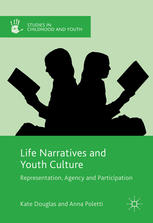

Most ebook files are in PDF format, so you can easily read them using various software such as Foxit Reader or directly on the Google Chrome browser.
Some ebook files are released by publishers in other formats such as .awz, .mobi, .epub, .fb2, etc. You may need to install specific software to read these formats on mobile/PC, such as Calibre.
Please read the tutorial at this link. https://ebooknice.com/page/post?id=faq
We offer FREE conversion to the popular formats you request; however, this may take some time. Therefore, right after payment, please email us, and we will try to provide the service as quickly as possible.
For some exceptional file formats or broken links (if any), please refrain from opening any disputes. Instead, email us first, and we will try to assist within a maximum of 6 hours.
EbookNice Team

Status:
Available4.3
9 reviewsThis book considers the largely under-recognised contribution that young writers have made to life writing genres such as memoir, letter writing and diaries, as well as their innovative use of independent and social media. The authors argue that these contributions have been historically silenced, subsumed within other literary genres, culturally marginalised or co-opted for political ends. Furthermore, the book considers how life narrative is an important means for youth agency and cultural participation. By engaging in private and public modes of self-representation, young people have contested public discourses around the representation of youth, including media, health and welfare, and legal discourses, and found means for re-engaging and re-appropriating self-images and representations. Locating their research within broader theoretical debates from childhood and youth studies: youth creative practice and associated cultural implications; youth citizenship and autonomy; the rights of the child; generations and power relationships, Poletti and Douglas also position their inquiry within life narrative scholarship and wider discussions of self-representation from the margins, representations of conflict and trauma, and theories of ethical scholarship.